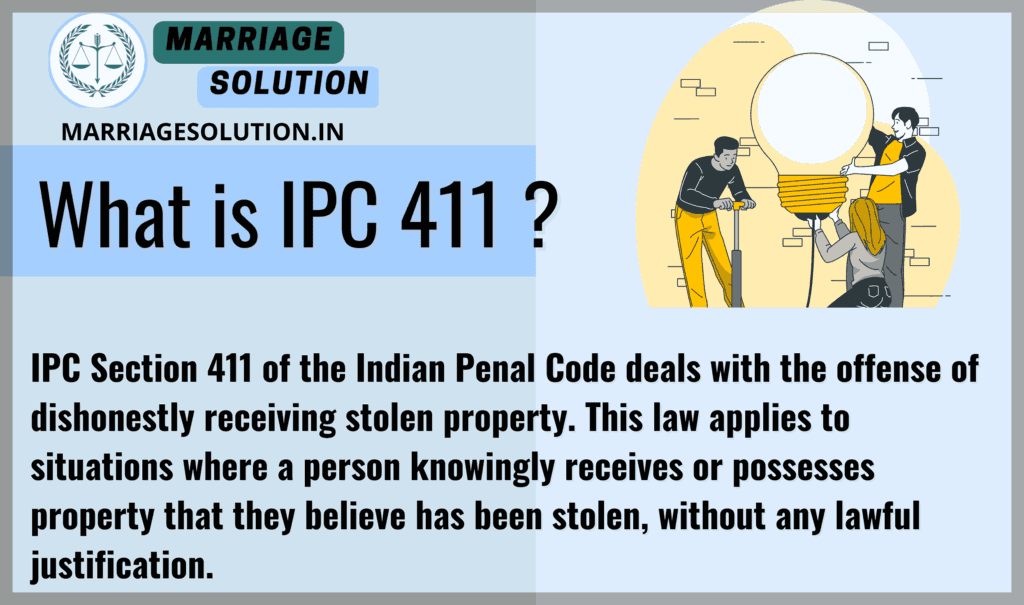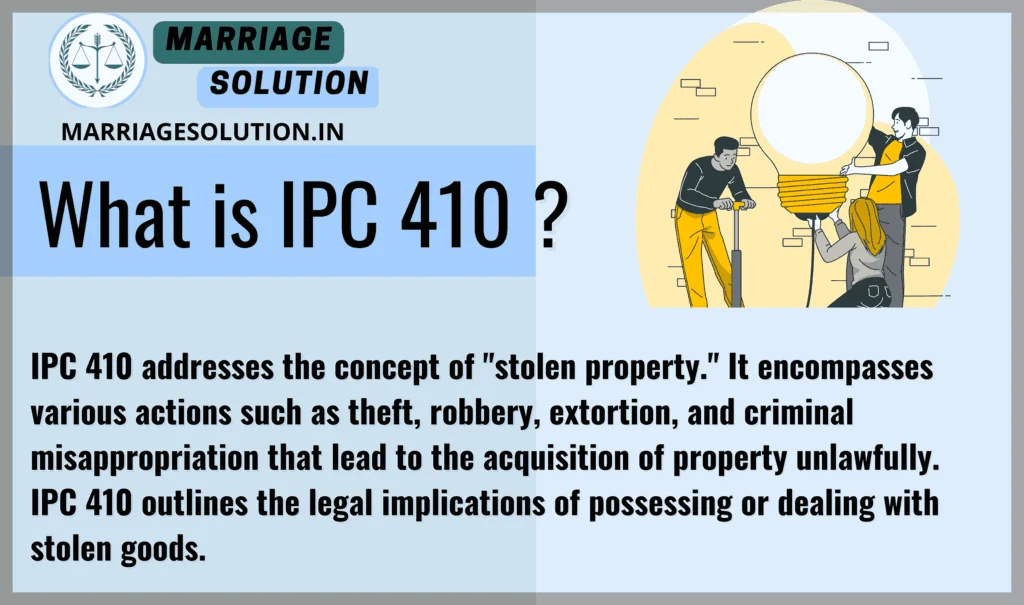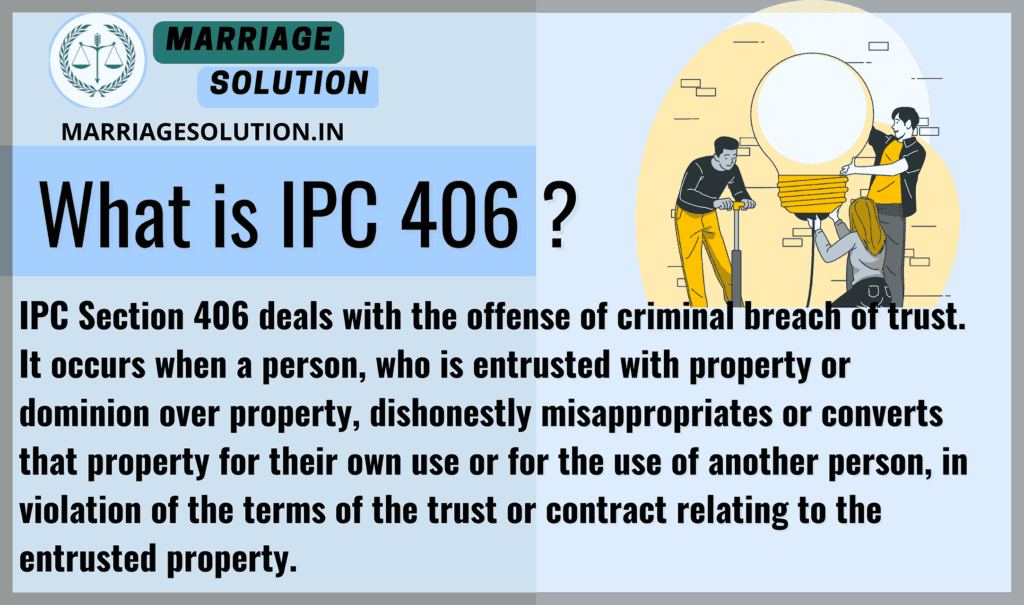IPC 412

Introduction IPC Section 412 addresses cases where stolen property, originally in the possession of a clerk or servant, is dishonestly received by another individual. This provision aims to prevent exploitation of trust between employers and their employees. Offenders can face legal consequences for knowingly receiving stolen goods that were under the custody of a clerk […]
IPC 411

Introduction IPC Section 411 of the Indian Penal Code addresses the offense of dishonestly receiving stolen property. It targets individuals who knowingly acquire or possess stolen goods, fully aware or having reasonable belief that they were unlawfully obtained. This provision emphasizes the importance of ethical behavior and lawful possession of property within society. Definition of […]
IPC 410

Introduction The Indian Penal Code (IPC) plays a crucial role in safeguarding citizens and their belongings. One such law, IPC 410, focuses on stolen property. This law clarifies what constitutes “stolen property” and its significance in legal matters. Definition of IPC 410 IPC 420 deals with the offense of “cheating and dishonestly inducing delivery of […]
IPC 409

Introduction IPC Section 409 addresses the serious offense of criminal breach of trust committed by public servants, bankers, merchants, or agents. Let’s dive into this section in easy-to-understand terms. Definition of IPC 409 IPC Section 409 addresses situations where public servants, bankers, or agents breach trust by dishonestly misusing property entrusted to them. This law […]
IPC 408

Introduction IPC 408 deals with criminal breach of trust by someone you hired or employed (clerk, servant, etc.). If they dishonestly use your property for their own benefit, they can be punished under this law. Definition of IPC 408 What’s the Crime? The employee you trusted dishonestly misuses your property for their own benefit. This […]
IPC 407

Introduction criminal breach of trust by someone entrusted with your goods. Imagine you hire a delivery service or store your belongings in a warehouse. IPC 407 comes into play if the person or company responsible for your goods (carrier, wharfinger, or warehouse keeper) dishonestly uses them for themselves or takes them for their own benefit. […]
IPC 406

Introduction IPC Section 406 deals with the crime of criminal breach of trust. This offense occurs when someone is entrusted with property or control over property, and they dishonestly use or dispose of that property for their own benefit or for someone else’s benefit, against the terms of the agreement or understanding under which the […]
